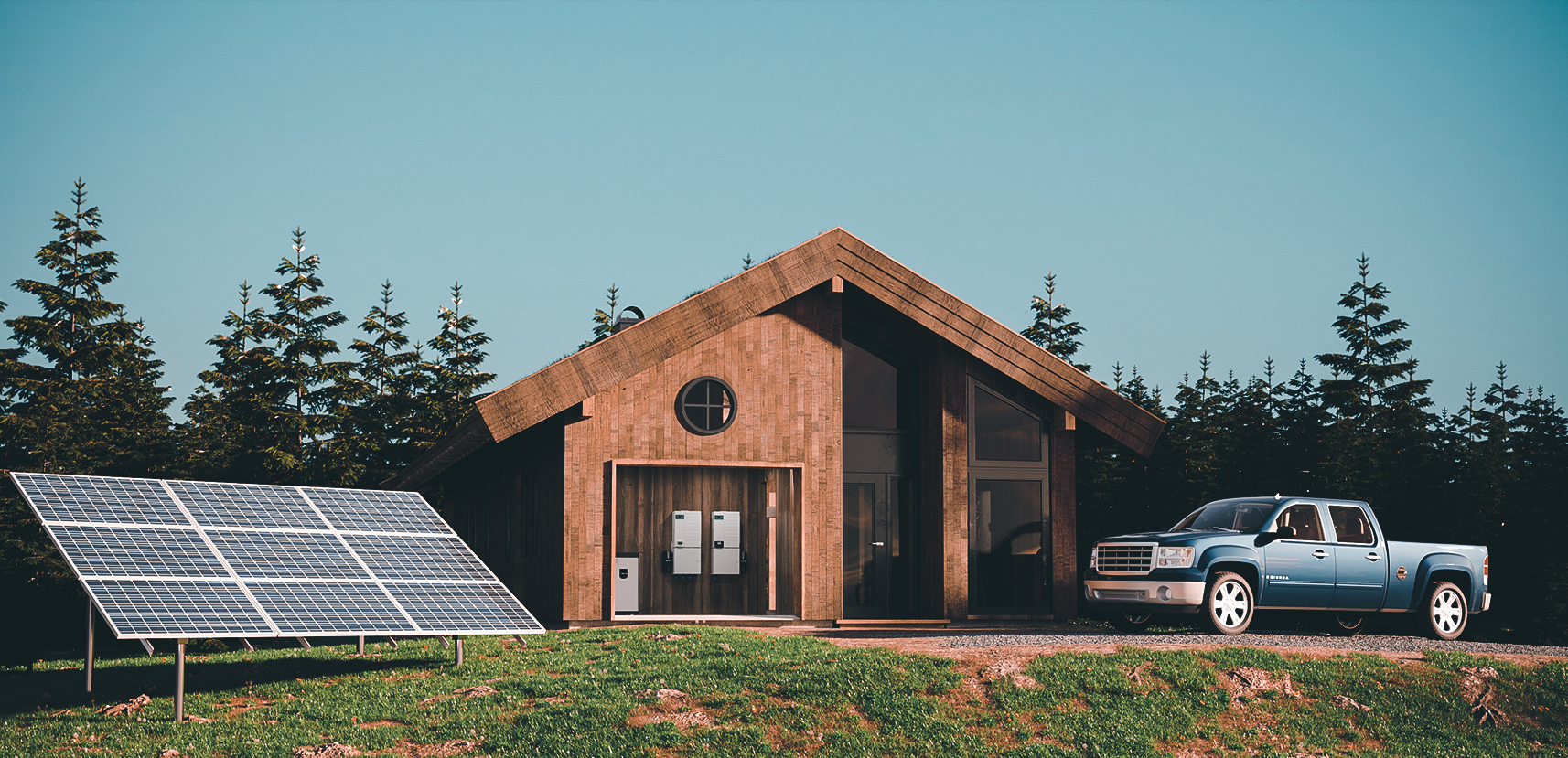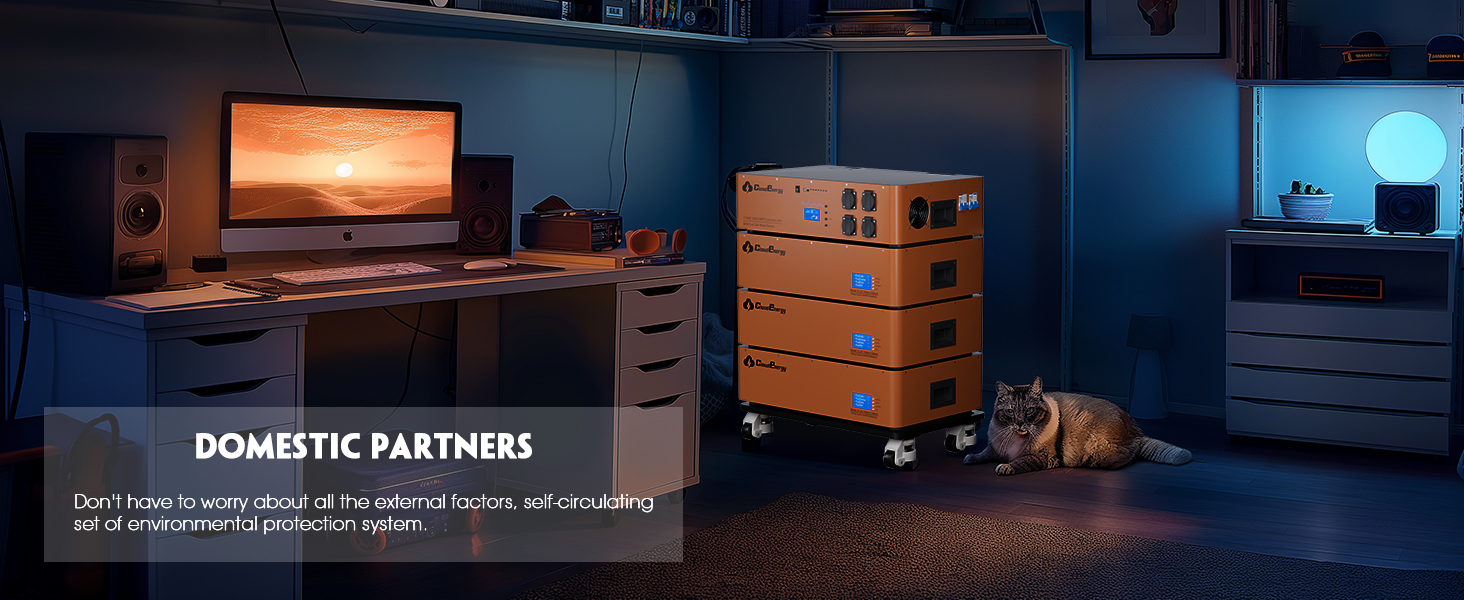The Future of Energy: Home-Centric Energy Storage Systems
The Future of Energy: Home-Centric Energy Storage Systems

Home energy storage systems are revolutionizing the way we manage and utilize energy. These systems not only provide a reliable backup power source but also enable homeowners to achieve greater energy independence and efficiency. As the world shifts towards more sustainable energy solutions, home energy storage systems are becoming increasingly important. In this blog post, we'll explore what these systems are, their benefits, types, and how they integrate with renewable energy sources.
What is a Home Energy Storage System?
A home energy storage system is a technology that allows homeowners to store electrical energy for later use. These systems typically consist of rechargeable batteries that can be charged from various sources, including the grid or renewable energy systems like solar panels and wind turbines. During power outages or periods of high electricity demand, the stored energy can be used to power essential household appliances and devices.
The primary components of a home energy storage system include the battery, an inverter to convert stored DC power to AC power, and a management system to monitor and control the energy flow.
Benefits of Home Energy Storage
Energy Independence
Home energy storage systems provide homeowners with greater energy independence. By storing energy on-site, you can reduce your reliance on the grid and protect yourself from power outages and rising electricity costs.
Improved Energy Efficiency and Reliability
These systems enhance energy efficiency by storing excess energy generated during off-peak hours and using it during peak demand times. This not only reduces strain on the grid but also ensures a reliable power supply.
Environmental Sustainability
Home energy storage systems contribute to environmental sustainability by enabling the use of renewable energy sources. By storing energy generated from solar or wind power, homeowners can reduce their carbon footprint and support the transition to a cleaner energy future.
https://cloudnewenergy.com/products/51-2v-600ah-stackable-battery-iv6000-inverter-bundle
Types of Home Energy Storage Systems
Lithium-Ion Batteries
Lithium-ion batteries are the most popular choice for home energy storage due to their high energy density, long lifespan, and efficiency. They are widely used in residential applications and offer reliable performance.
Lead-Acid Batteries
Lead-acid batteries are a more traditional and cost-effective option. While they have a shorter lifespan and lower energy density compared to lithium-ion batteries, they are still suitable for certain energy storage applications.
Flow Batteries
Flow batteries are an emerging technology that offers scalability and long cycle life. They are ideal for larger-scale energy storage applications but are currently less common in residential settings.
Other Energy Storage Technologies
Other energy storage technologies include solid-state batteries, sodium-ion batteries, and hydrogen storage systems. These technologies are still in development and may become more prevalent in the future.
Key Features to Look for in a Home Energy Storage System
Battery Capacity and Lifespan
The capacity of the battery determines how much energy can be stored. Look for a system with sufficient capacity to meet your household energy needs. Additionally, consider the lifespan of the battery to ensure long-term reliability.
Charging Speed and Efficiency
Choose a system that offers fast charging speeds and high efficiency. This ensures that the battery can be quickly recharged and provides maximum energy utilization.
Smart Management and Monitoring
Modern energy storage systems come with smart management and monitoring features. These allow you to track the battery's performance, monitor energy usage, and optimize energy distribution through mobile apps or built-in displays.
Safety and Environmental Friendliness
Ensure that the energy storage system includes safety features such as overcharge protection, short-circuit protection, and thermal management. Additionally, consider systems made with environmentally friendly materials and processes.
Integration with Renewable Energy Sources
Home energy storage systems can be seamlessly integrated with renewable energy sources like solar panels and wind turbines. This integration allows homeowners to store excess energy generated during sunny or windy days and use it during periods of low energy production.
Boosting Renewable Energy Utilization
By storing renewable energy, these systems help maximize the utilization of clean energy sources, reduce dependence on fossil fuels, and lower greenhouse gas emissions.
Enhanced Energy Security
Integrating energy storage with renewable energy sources enhances energy security by providing a reliable backup power source during grid outages or fluctuations in energy supply.
Smart Home Energy Management
Smart home energy management systems play a crucial role in optimizing energy usage and cost savings. These systems use advanced algorithms and real-time data to manage the distribution of energy within the home.
Optimizing Energy Usage
Smart energy management systems can prioritize energy usage based on demand, time of day, and energy costs. This ensures that energy is used efficiently and helps reduce electricity bills.
Cost Savings
By optimizing energy usage and reducing peak demand charges, smart energy management systems can lead to significant cost savings for homeowners.
Real-World Applications
Home energy storage systems have proven invaluable in various real-world scenarios. Here are some examples:
Power Outages
During power outages, a home energy storage system can provide essential power, ensuring that your home remains functional and safe.
Extreme Weather Conditions
In regions prone to extreme weather conditions, such as hurricanes or storms, having a reliable energy storage system can make a significant difference in maintaining power and safety.
User Experiences
Many users have shared positive experiences with home energy storage systems, highlighting their reliability, ease of use, and peace of mind.
Conclusion
Home energy storage systems provide a reliable and efficient solution for maintaining power during outages and emergencies. Their importance cannot be overstated, especially in today's world where uninterrupted power supply is crucial.
Consider installing a home energy storage system to ensure that your home remains functional and safe during power disruptions. With the right system in place, you can enjoy peace of mind and reliable energy storage.
Introducing CloudEnergy's 48V 600Ah 30.72Kwh Stackable LiFePO4 Battery with 6kw Inverter 60A MTTP(30.72Kwh) Battery+Inverter
CloudEnergy offers an advanced home energy storage solution with our 48V 600Ah 30.72Kwh Stackable LiFePO4 Battery. This versatile battery can be wall-mounted or used in a cabinet installation, making it suitable
Leave a Reply
- Golf Cart Lithium Battery Replacement for 2013 Club Car Precedent
- Upgrade Your Club Car DS with CloudEnergy Lithium Batteries
- Understanding LiFePO4 Charge Curves: A Comprehensive Guide
- Upgrading Your Golf Cart to Lithium Batteries: A Comprehensive Guide
- What Are the Best Battery Types for Off-Grid Living?